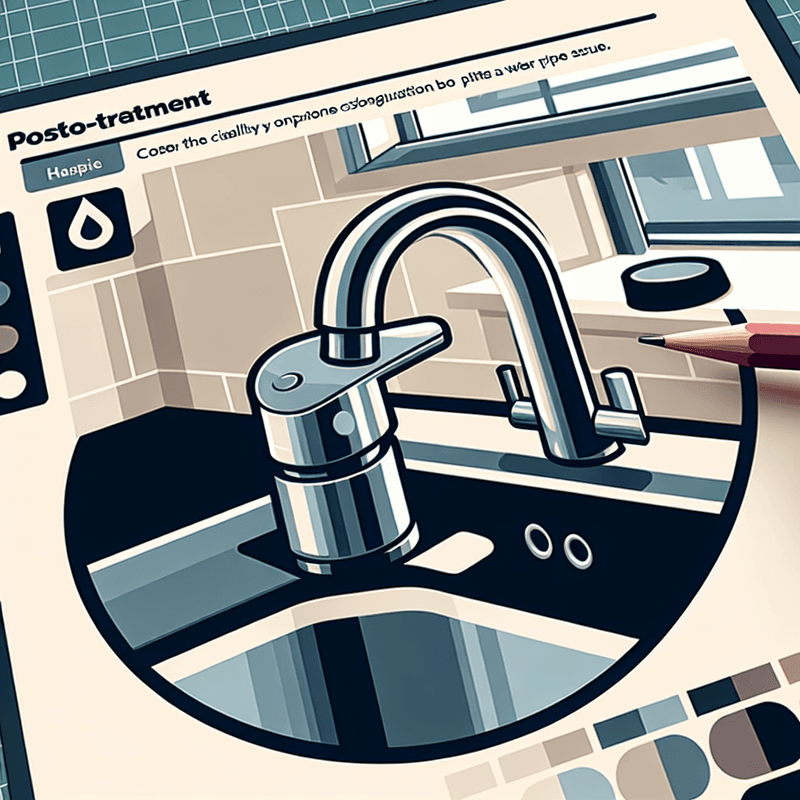Imagine you're washing up after dinner, and you notice the water in your sink isn't draining as quickly as it used to. Or perhaps you wake up one morning to find your bathroom sink is more of a mini swamp than a functional part of your daily routine. It's a common issue — a slow draining sink. This seemingly small problem can be a symptom of larger issues within your plumbing system. Understanding what causes a sink to drain slowly, how to effectively fix it, and how to prevent it from happening again can save you not just time, but also prevent potential future headaches and serious plumbing issues.
Slow draining sinks are not just nuisances; they're often the first sign of blockage that, if ignored, could lead to more severe drainage problems. This post will explore the reasons behind slow draining sinks, DIY fixes you can safely attempt, and when it’s time to call a professional.
Identifying the Problem
What Causes a Sink to Drain Slowly?
Clogged pipes are the most common cause of slow-draining sinks. Over time, hair, soap scum, grease, and food particles can build up in the pipes, narrowing the passage through which water can flow. Environmental factors and pipe layout also contribute to this problem.
Common Signs of a Blocked Sink
- Water pooling and draining slowly
- Unpleasant odours emanating from the drain
- Gurgling sounds as water struggles through the pipes
DIY Fixes for Slow Draining Sinks
Hot Water Technique
Sometimes, a simple flush of boiling water can dislodge minor blockages caused by soap or grease. It’s the first and easiest step to attempt before moving on to more involved methods.
Baking Soda and Vinegar Solution
This natural combination can help break down the organic materials clogging your drains. Pour half a cup of baking soda followed by half a cup of vinegar down the drain. Cover it to contain the reaction and leave it for an hour before rinsing with hot water.
Plunging
A plunger can also be used to clear a sink blockage. Ensure you create a good seal around the plunger and use a consistent pumping motion to dislodge any material blocking the pipes.
When to Use Chemical Drain Cleaners
While over-the-counter chemical drain cleaners are widely available, they should be used sparingly. These chemicals can be harsh and may cause damage to your pipes if used improperly or too frequently. They can also be harmful to the environment. If you decide to use chemical cleaners, ensure you follow the instructions carefully and use them as a last resort.
Tools for the Task
Plumber’s Snake or Auger
A more mechanical approach involves using a plumber’s snake to physically remove blockages deep within the pipes. This tool can reach areas that are typically beyond the reach of most household remedies.
Wet/Dry Vacuum
For tougher situations, a wet/dry vacuum can be set to liquid to suck out materials causing blockage. This requires some caution and proper setting adjustments to ensure the vacuum is not damaged in the process.
Know When to Call a Professional
While many blockages are manageable with DIY methods, there are signs that you might need a professional plumber’s help:
- Persistent blockage that doesn’t clear with the above methods
- Multiple slow-draining fixtures in your home
- Water backing up in places it shouldn’t
Long-Term Prevention
Maintaining a blockage-free sink is preferable to dealing with the aftermath of clogs. Here are some preventive measures:
- Regularly clean your drain stoppers.
- Avoid disposing of oils and food remnants in your sink.
- Use drain guards to catch hair in bathrooms.
Conclusion
Dealing with a slow draining sink is frustrating but often manageable with the right approach and tools. Start with simple home remedies like hot water, and baking soda with vinegar. Escalate to more mechanical solutions like plunging or using a plumber's snake if necessary. Remember, prevention is always better than cure. Regular maintenance can keep your plumbing in good health and slow draining sinks at bay. If all else fails, don’t hesitate to call in the professionals to safeguard your home’s plumbing integrity.
Taking care of your drains regularly and knowing how to handle slow-draining sinks can prevent more significant plumbing challenges. As a part of your next home maintenance routine, take a moment to check your sinks for early signs of blockage and address them promptly. Your future self will thank you for the reduction in potential plumbing stresses and costs.





